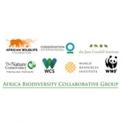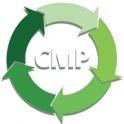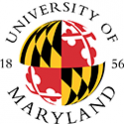Non-Governmental and Technical Partners

Effective partnerships are central to the delivery of African Wildlife Foundation’s mission. In each landscape where we work, AWF strives to build and maintain long-term, trusted relationships with local communities and associations as direct partners in conservation. AWF also works to leverage the unique expertise of outside partners—such as universities, research organizations, development organizations, and the private sector—to help address particular challenges and introduce promising ideas and technologies. A few current technical partnerships are highlighted below.
Technical Partners

Africa Biodiversity Collaborative Group
African Wildlife Foundation is a founding member of the Africa Biodiversity Collaborative Group (ABCG), a consortium comprised of seven U.S.-based international conservation nongovernmental organizations (NGOs) aimed at advancing the understanding of critical biodiversity conservation challenges and their solutions in sub-Saharan Africa. We aspire to produce applicable knowledge and put it into practice. ABCG offers AWF important opportunities to pursue and exchange learning on high-priority and emerging conservation issues. In the past few years, AWF teamed up with ABCG to conduct a systematic review of approaches used by villages to implement Village Land-Use Plans in Tanzania, assess the impacts of human responses to climate change on natural resources, and to develop a methodological approach to conservation and land use planning, based on scenario analysis, to incorporate equitable and climate-smart alternatives into land use decisions for conservation.

Centre for Research and Conservation
Centre for Research and Conservation (CRC) is lending their expertise in the use of camera traps–a digital camera connected to an infrared sensor that captures images of animals – and acoustic sensors to help AWF assess and monitor wildlife abundance and anthropogenic pressures in several Central African sites. These tools help AWF to collect data to monitor trends of hunting pressure and in wildlife abundance and diversity to help AWF guide conservation efforts and gauge the impact of its work.

Conservation Measures Partnership
The Conservation Measures Partnership (CMP) provides a forum for organizations to improve the practice of conservation. Members collaborate to better design and monitor the impacts of their conservation actions. The partnerships recognize that collectively we can develop more effective tools for project design and monitoring and evaluation than going it alone. CMP strives to share these collaborative products to benefit the entire conservation community.
AWF is a founding member of CMP and has contributed to the development of the Open Standards – guidelines for sound conservation fundamentals–and enabling tools such as Miradi.
a

Cornell has pioneered the use of acoustic monitoring to better understand the distribution, number, and behaviors of a wide range of creatures from birds to elephants across the globe. They are helping AWF develop the capacity to use acoustic sensors–rugged devices that record sound 24/7 – as sentinels to listen for threats such as gunshots related to wildlife poaching as well as for documenting the relative abundance of target wildlife species such as elephants. Detecting gunshots is a direct way to measure hunting pressure on wildlife populations and tracking gunshots over time can provide evidence of conservation impact.

MAISHA Group
MAISHA Group is a strategic consulting company providing holistic security solutions to governments, non-government and private sector actors who operate in high-risk jurisdictions and want to bring about positive change. They combine big data analysis, field operations and innovative technology to advance customer agendas.
For several years, Maisha has supported AWF and partners in high-risk security environments by providing training on risk assessment, operational safety, firearm use, and intelligence gathering and management. Maisha is adding the use of Unmanned Aerial Vehicles to their package of support emphasizing reconnaissance to bolster field team awareness and security as well as for monitoring of regional wildlife and threats.

Since 2005, specialists from the University of Maryland’s Department of Geography have worked hand in hand with AWF, the parks authority, and local communities in the Maringa Lopori Wamba landscape of the DRC to create models and maps to aid in conservation land use planning and zoning. UMD experts lead participatory mapping, conduct remote sensing, and establish baselines and track changes over time concerning forest cover, agriculture, settlement, prevalence of fire, bonobo and other indictors which help AWF, UMD, and other partners in the Congo Basin track the health of the forest and determine where to direct resources.